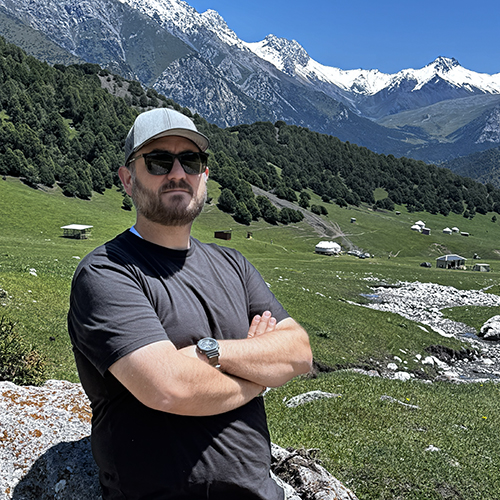More than six million Jews were killed, as well as others deemed “unworthy” of life by the Nazi leadership. More than two dozen concentration camps were created. These are known facts about the Holocaust. But scholars continue to explore the complex causes of the tragedy and its continuing impact on the world. In two new courses offered by the History Department, professors Uta Poiger and Sarah Stein delve into these questions with undergraduate and graduate students.
“The Holocaust is such a huge field at this point,” says Poiger. “The amount of scholarship that has been generated is daunting. Our challenge was to find a way to responsibly teach this topic, with all its moral weight and depressing subject matter, to an undergraduate audience. It is a challenge to get the story right.”

Poiger, who specializes in German history, and Stein, whose focus is Jewish history, collaborated on the course to present the subject from multiple perspectives. They taught the graduate course first, inviting participants to help shape the undergraduate course that would follow.
“I think the graduate students appreciated that they were being treated as colleagues to help us think about how to work through these issues,” says Poiger. “Two of those students became teaching assistants for the undergraduate class.”
The second course, with a limit of 150 students, filled quickly. Poiger and Stein were not surprised by student interest in the subject. “These students have witnessed genocide in their lifetime,” says Stein. “‘Ethnic cleansing’ is a term they are very familiar with. They want to understand the historical context of this.”
Poiger and Stein began the class by asking students to identify the victims and perpetrators of the Holocaust. “The students’ answers were shockingly general—that everyone was victimized by the Holocaust,” says Stein. “In a way, there is a certain savvy in that answer. But we wanted to root the story in a very specific historical place with very specific historical players.”
The historical place was not Germany, as many people believe. It was all of Europe and the context was World War II. This was a central message in the course.
“Ninety-five percent of the Jews killed were not German Jews,” says Poiger. “This is a European story. It requires examining the actions of the Nazis and Germans all over Europe, and it is also important to look at the complicated question of collaboration by other national groups. How is it that Danish Jews were saved, and Greek Jews had the highest rate of being killed? How is it that regular citizens, not just Nazis—and not just Germans—did much of the killing?”
To explore these questions, Poiger and Stein assigned diverse readings, including a memoir by Auschwitz survivor Primo Levi, works by historians, primary documents from the period, and Art Spiegelman’s haunting Maus I. They also presented sections of Claude Lanzmann’s Shoah, a documentary film in which witnesses to the Holocaust share their individual stories.
None of this is light material. “It was a hard class,” admits Stein. “The reading was not easy. There was a lot of very disturbing material, although we were not trying to be salacious. One does have to bring a certain focus and dedication to sign up for a class like this.”
Toward the end of the quarter, having discussed the Holocaust in its historical context, the class explored how it has been memorialized over time. “What the Holocaust is is not an historical constant,” says Stein. “It’s a moving target. We wanted to address larger issues of the meaning of history and historical memory.” They ended the course by placing the Holocaust in a comparative perspective, exploring whether such events could happen again—or already have.
The conclusions reached are not rosy. The end of the course, like the beginning, had the potential to be depressing to students. But, says Stein, it was important to get beyond that to delve into important questions raised by the Holocaust.
“Our job as teachers of critical thinking and history is to balance depressed reactions with the instruction that even depressing topics should be approached with critical thinking skills. Historians can’t let go of their critical thinking skills due to grief.”
More Stories

AI in the Classroom? For Faculty, It's Complicated
Three College of Arts & Sciences professors discuss the impact of AI on their teaching and on student learning. The consensus? It’s complicated.

A Sports Obsession Inspires a Career
Thuc Nhi Nguyen got her start the UW Daily. Now she's a sports reporter for Los Angeles Times, writing about the Lakers and the Olympics.

Through Soil Science, an Adventure in Kyrgyzstan
Chemistry PhD alum Jonathan Cox spent most of 2025 in Kyrgyzstan, helping farmers improve their soil—and their crops—through soil testing.